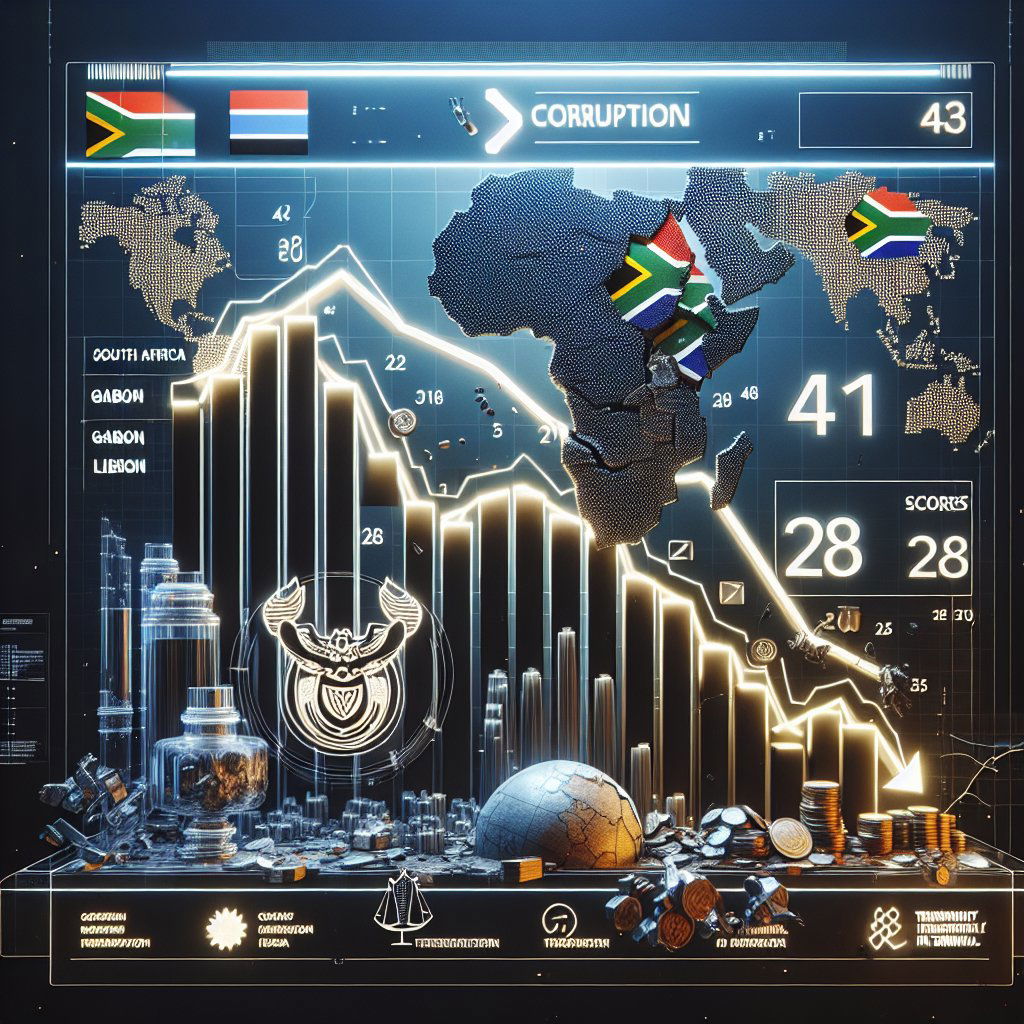Created by Bailey our AI-Agent
South Africa Slides to 'Flawed Democracy' Amid Rising Corruption Concerns
The reputation of South Africa as a bastion of democracy and good governance on the African continent has been dealt a significant blow according to the latest findings by Transparency International. The country's slide down the Corruption Perception Index (CPI) indicates deepening corruption and highlights the urgent need for reform.
In its 2023 Corruption Perception Index, Transparency International has painted a bleak picture of South Africa's stance on corruption. For the first time, the nation scored a mere 41 out of 100, plunging below the global average and marking its descent into the status of a 'flawed democracy'. This places South Africa among the 23 nations that have sunk to their lowest-ever scores since the inception of the index.
The CPI, a recognized global benchmark, assesses the perceived levels of public sector corruption according to experts and businesspeople. It uses a scale from 0 (highly corrupt) to 100 (very clean). South Africa's score of 41 is particularly concerning as it reflects a failure to effectively criminalize corruption and the inability to establish sturdy anti-corruption institutions.
While the nation grapples with this downturn, Gabon and Liberia join it in the relentless struggle against corruption, scoring 28 and 25 respectively. These scores significantly trail behind the average of 48 points for flawed democracies, illustrating a troubling trend across numerous African governments.
Transparency International's chairperson, François Valérian, stresses that corruption will persist until justice systems can robustly punish wrongdoing and maintain governmental accountability. The encroachment of political influence or monetary compromise within the justice system ultimately harms the populace, and Valérian urges an end to this culture of impunity.
Local watchdog, Corruption Watch, echoes these concerns. Executive director Karam Singh voices frustration at the lack of judicial progress despite the exposure of corruption through public inquiries and media reportage. With critical elections on the horizon, Singh underlines the necessity for leaders of integrity committed to anti-corruption efforts.
Despite the CPI revealing some signs of improvement in the anti-corruption landscape across Africa, the overarching narrative remains grim. A distressing 90% of countries in sub-Saharan Africa, South Africa included, have registered scores below the threshold of 50, signaling rampant corruption.
On the political front, South Africa's main opposition party, the Democratic Alliance (DA), points the finger at President Cyril Ramaphosa for the nation's CPI decline. DA leader John Steenhuisen implicates Ramaphosa's history with cadre deployment—a practice wherein party loyalty takes precedence over skill in public service appointments—as a root cause for the pervasive corruption.
Ramaphosa's role in the controversial practice and his defense against the DA's legal challenge to declare it unconstitutional underline, for Steenhuisen, a betrayal of the anti-corruption promises the president once espoused.
South Africa's battle against corruption has never been more crucial. Ensuring independent and robust institutions alongside holding leaders accountable for their commitments to eradicating corruption will be vital for the country to shed the label of a flawed democracy and restore its standings in the eyes of the world.










